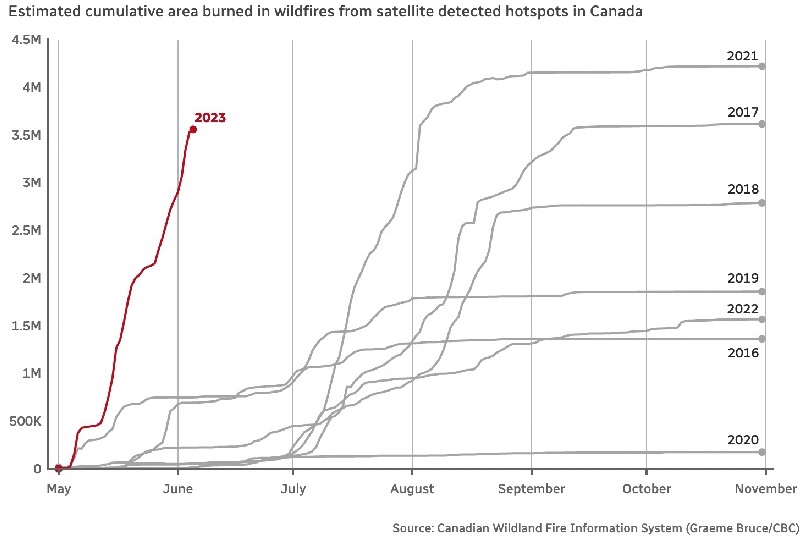This year is shaping up to be the worst fire season for Canada yet. This dramatic graph tells the story:

That's an astonishingly large early start; so far 2021 has us beat in terms of area burned, but it's only just the start of June!
What's going on?
Obviously climate change is making Canada warmer, which is extending the fire season on either end. Climate change is also expected to increase lightning strikes, which account for about half of the fires started in Canada, so that's a factor too. Any one given year will have its ups and downs, but the overall trend is towards more area burned each year. This year has been remarkably hot (the ocean hit a new all-time record for HOTTEST EVER this April), and we've also got a developing El Nino on our hands, which will make the western half of the country hotter and dryer. Here's the chart showing the general trend in area burned so far:

And here's how it's expected to play out in future (reality likely probably somewhere between the red, which assumes our greenhouse gases keep increasing, and the green, where we cut emissions quickly).

Note there's a LOT of complicating factors with fire, including a history of how we have managed forests and put-out fires (leading to a build up of burnable fuel). Also sometimes if it's wetter in early spring that can make for a bad fire season later in summer, as that boosts early spring growth and leads to more fuel to burn later when it dries out. Wind is a big issue in terms of how big fires get. So there's a lot of factors at play. In general, the western side of North America is one of the few places in the world where it has been easier to link increasing fire activity to climate change. In the western U.S., human-caused climate change has been held responsible for about half of the increase in area burned over recent decades.
For now, it's not smokey where I live (fingers crossed). But I bet this summer will be bad. The question is whether this fire season will keep ramping up, or settle down for the rest of the summer... anyone know?????
No comments:
Post a Comment